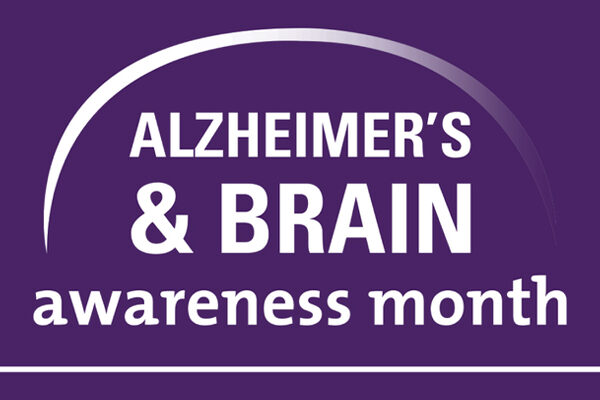Last Updated on September 21, 2022
Overview:
Have you ever heard of a condition called Terminal Ileitis? Does it ring an alarm? Do not worry, it is not as scary as it sounds. This condition is a disease of the terminal part of the ileum (the last part of the small intestine). The word ileitis when broken down into two separate words, refers to the ileum, and ‘itis’ means inflammation. It affects the gastrointestinal tract and causes various symptoms, including diarrhea, and abdominal pain, to name a few.
In this blog, we will be discussing the symptoms, causes, complications, its link with IBD, and the management of Terminal Ileitis.
What Happens In Terminal Ileitis?
As previously mentioned, ileitis is the inflammation of the ileum, which is the last or final part of the small intestine. It is a lifelong condition but it can be managed with proper care and treatment. It is most commonly associated with Crohn’s disease which is a form of inflammatory bowel disease (IBD), but this is not always the case. There could be other causes of Terminal Ileitis as well that needs to be studied to confirm the diagnosis.
Causes of Terminal Ileitis:
Crohn’s disease is the most common cause of Ileitis, however, there are other causes of this condition. These include:
- Ulcerative Colitis,
- Intestinal inflammation,
- Lymphoma,
- Lymphoid hyperplasia,
- NSAIDs,
- Lesions of ileum, and
- Genetic mutation, same as Crohn’s disease (NOD2).
Symptoms of Terminal Ileitis:
The symptoms of this condition vary because the ileum can become inflamed due to a variety of causes. Ileitis signs and symptoms typically include:
- Cramping and lower abdominal ache,
- Diarrhea,
- Bloody stools,
- Malabsorption, and
- Weight loss.
It’s critical to remember that symptoms like cramping and diarrhea might frequently occur for various causes. However, these symptoms could persist due to chronic ileum inflammation. If these symptoms continue, it is essential to talk to a physician so that they can assist you in determining what is causing them.
Symptoms of terminal ileitis can occasionally be absent. The issue might only be identified by chance during a standard colonoscopy, which involves guiding a probe with a camera on the end through the colon.
There are many recommendations for treating ileitis without symptoms. According to research, the risk of acquiring Crohn’s disease is low if a person has terminal ileitis and neither digestive symptoms nor a history of the condition. In such cases, additional testing or treatment may not be advised.
Diagnosis of Terminal Ileitis:
As isolated acute terminal ileitis lacks the persistent symptoms of inflammatory bowel disease, this condition on its own might be challenging to identify. It can also be caused by a broad range of factors, even something as common as using NSAIDs.
Furthermore, ileitis can mimic other clinical disorders including Crohn’s disease. Thus, Crohn’s disease could be mistakenly diagnosed. With the challenge of making the correct diagnosis for this condition, a thorough diagnostic workup is frequently advised. Physicians or Gastroenterologists will probably recommend a colonoscopy and ileoscopy.
Colonoscopy:
A tiny scope with a camera on the end is run through the colon during a colonoscopy to check for anomalies. The ileum is the focus of the ileoscopy, which involves guiding the scope into the small intestine.
During the colonoscopy and ileoscopy, your doctor could occasionally take a biopsy (a small tissue sample) of the terminal ileum to send back to the lab for examination under a microscope. This can assist your doctor in providing a conclusive diagnosis.
Differential Diagnosis of Terminal Ileitis:
The differential diagnosis of this condition is comprehensive, it includes:
- Ulcerative Colitis,
- Crohn’s Disease,
- Infectious Colitis,
- Ankylosing Spondylosis,
- Reactive Arthritis,
- Systemic Lupus Erythematosus,
- Behcet Disease,
- Non-steroidal anti-inflammatory drugs (NSAID) enteropathy,
- Endometriosis,
- Sarcoidosis,
- Amyloidosis,
- Typhilitis,
- Psoriasis,
- Small bowel ischemia,
- Giant cell arteritis,
- Eosinophilic gastroenteritis,
- Adenocarcinoma of the small bowel,
- Vasculitides,
- Carcinoid tumors and others.
Is there a Link between Terminal Ileitis and Crohn’s Disease?
There is only inadequate evidence that ileitis causes Crohn’s disease, according to researchers who thoroughly examined the relationship between the two conditions. The results suggest that only 5% of instances of terminal ileitis without a history of inflammatory bowel disease advance to Crohn’s disease, according to one group of researchers that looked at the relationship between the two conditions.
However, there might be some warning signs, particularly Crohn’s disease linked to ileitis. According to a study, for instance, the narrowing of the intestinal wall on imaging may be a sign of terminal ileitis that could eventually lead to Crohn’s disease.
Is Terminal Ileitis Curable?
This is a lifelong condition that can be managed with proper care and by following a healthy regime that could help in alleviating the symptoms of Ileitis.
How is Terminal Ileitis Treated?
Medications:
Treatment of Ileitis depends on the diagnosis. Established on the diagnostic results, ileitis can be treated by:
- Antibiotics,
- Corticosteroids,
- Anti-inflammatory,
- Antidiarrheal, and
- Immune suppressants.
Along with medications, lifestyle modifications are required to alleviate the symptoms of ileitis.
There is no guide on what foods are best or can mess up your digestive tract. It is a trial and error process. However, you may need to avoid fruits and vegetables that are rich in fiber.
Surgery:
Surgery is the last resort. It is recommended when medications fail to work, and complications develop. Surgery is performed to eliminate blockages and remove affected parts, and perforations in the intestine.
The Takeaway:
Terminal Ileitis comes with its fair share of trouble that can make the life of an individual challenging. Ileitis is also a difficult condition to diagnose. Most of the time, the symptoms overlap with that of other gastrointestinal issues that make diagnosis a challenge. Therefore, it is advised to discuss your symptoms with your physician to rule out any other condition and start with a definite treatment for Ileitis, as it is often associated with conditions like Crohn’s disease.




